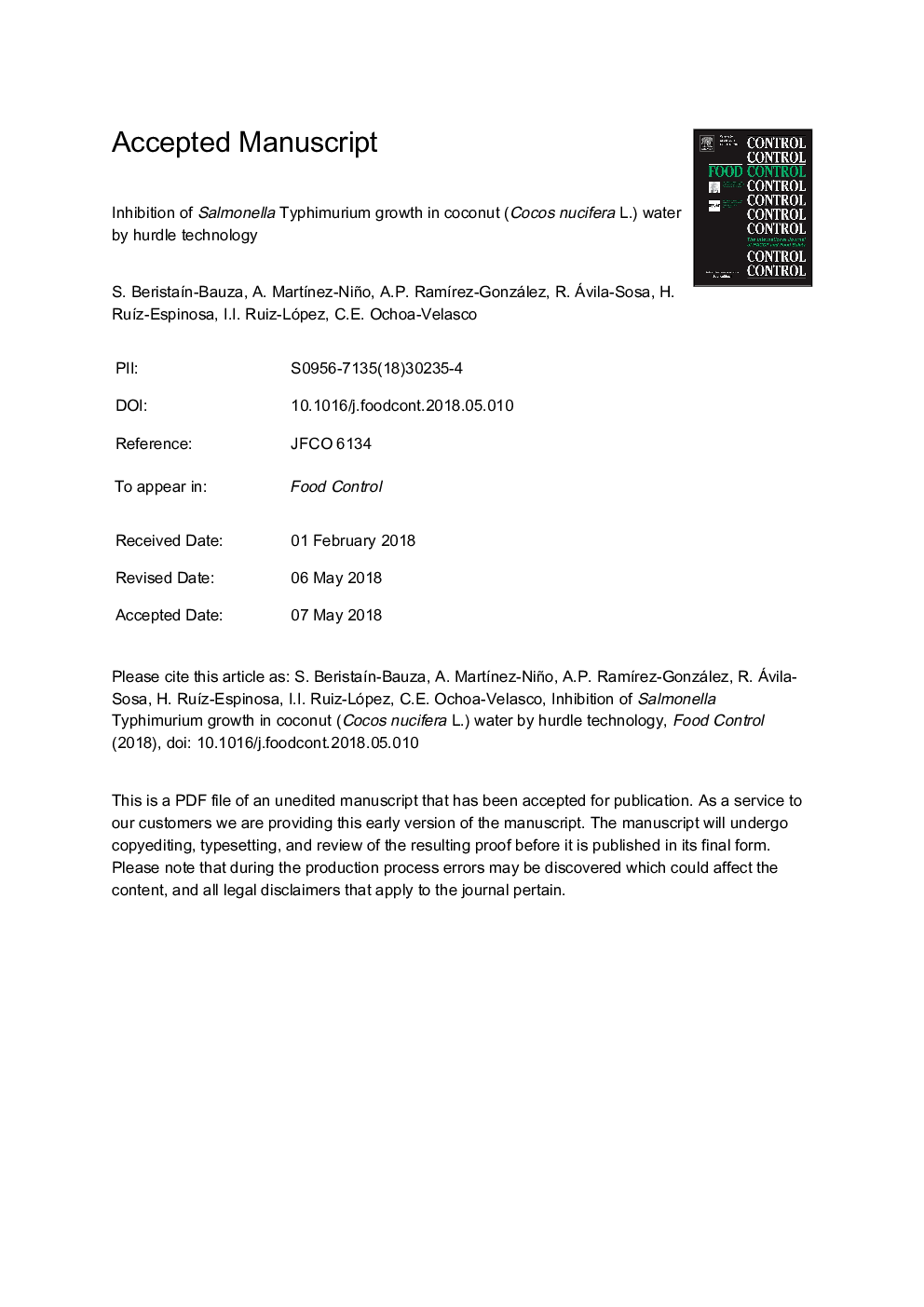| Article ID | Journal | Published Year | Pages | File Type |
|---|---|---|---|---|
| 8887842 | Food Control | 2018 | 27 Pages |
Abstract
The aim of this study was to evaluate a hurdle technology approach (ultraviolet-C light treatment, vanillin or cinnamaldehyde and storage temperature) for preventing the growth of Salmonella Typhimurium inoculated into coconut water. Inoculated coconut water was treated with UV-C light at different times (3.5, 7 and 10.5â¯min); immediately, selected natural antimicrobials (vanillin and cinnamaldehyde) were added at fixed concentrations and stored under refrigeration (5â¯Â°C) and room (22â¯Â°C) temperatures for 30 days. Beta model was used for describing either growth or death kinetics of S. Typhimurium. By themselves, antimicrobials significantly decreased S. Typhimurium counts achieving a maximum reduction of 1.4â¯Â±â¯0.3 log CFU mLâ1 with cinnamaldehyde (100â¯Î¼gâ¯mLâ1). Natural antimicrobials and low temperature significantly affected (pâ¯<â¯0.05) S. Typhimurium growth during storage. A 7-min UV-C light exposure allowed the inhibition of S. Typhimurium growth in coconut water containing natural antimicrobials over a 30-day storage at 5â¯Â°C. Moreover, a 10.5-min UV-C light treatment per se prevented S. Typhimurium growth in coconut water, regardless of any other hurdles applied. Beta model satisfactorily fits the experimental data. Results might be used for developing a low-cost preservation method for coconut water.
Related Topics
Life Sciences
Agricultural and Biological Sciences
Food Science
Authors
S. BeristaÃn-Bauza, A. MartÃnez-Niño, A.P. RamÃrez-González, R. Ávila-Sosa, H. RuÃz-Espinosa, I.I. Ruiz-López, C.E. Ochoa-Velasco,
